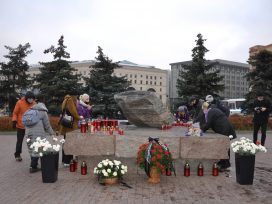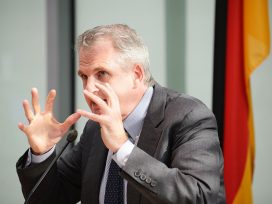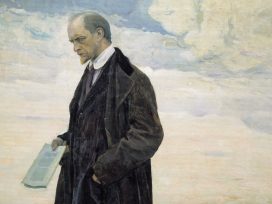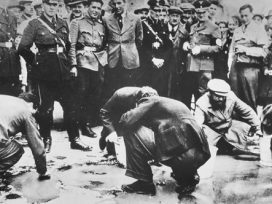 is Professor of History at Yale University, member of the Council on Foreign Relations, and Permanent Fellow of the Institute for Human Sciences (IWM) in Vienna. Among his publications are: Sketches From a Secret War: A Polish Artist’s Mission to Liberate Soviet Ukraine (New Haven, 2005), The Red Prince: The Secret Lives of a Habsburg Archduke (New York 2008), Bloodlands: Europe between Hitler and Stalin (2010), Black Earth: The Holocaust as History and Warning (Penguin, 2015), On Tyranny: Twenty Lessons from the Twentieth Century (Tim Duggan Books, 2017) and The Road to Unfreedom: Russia, Europe, America (Tim Duggan Books, 2018). In May 2009, he delivered the keynote speech at the Eurozine conference ‘European histories’ in Vilnius.
is Professor of History at Yale University, member of the Council on Foreign Relations, and Permanent Fellow of the Institute for Human Sciences (IWM) in Vienna. Among his publications are: Sketches From a Secret War: A Polish Artist’s Mission to Liberate Soviet Ukraine (New Haven, 2005), The Red Prince: The Secret Lives of a Habsburg Archduke (New York 2008), Bloodlands: Europe between Hitler and Stalin (2010), Black Earth: The Holocaust as History and Warning (Penguin, 2015), On Tyranny: Twenty Lessons from the Twentieth Century (Tim Duggan Books, 2017) and The Road to Unfreedom: Russia, Europe, America (Tim Duggan Books, 2018). In May 2009, he delivered the keynote speech at the Eurozine conference ‘European histories’ in Vilnius.

 is Professor of History at Yale University, member of the Council on Foreign Relations, and Permanent Fellow of the Institute for Human Sciences (IWM) in Vienna. Among his publications are: Sketches From a Secret War: A Polish Artist’s Mission to Liberate Soviet Ukraine (New Haven, 2005), The Red Prince: The Secret Lives of a Habsburg Archduke (New York 2008), Bloodlands: Europe between Hitler and Stalin (2010), Black Earth: The Holocaust as History and Warning (Penguin, 2015), On Tyranny: Twenty Lessons from the Twentieth Century (Tim Duggan Books, 2017) and The Road to Unfreedom: Russia, Europe, America (Tim Duggan Books, 2018). In May 2009, he delivered the keynote speech at the Eurozine conference ‘European histories’ in Vilnius.
is Professor of History at Yale University, member of the Council on Foreign Relations, and Permanent Fellow of the Institute for Human Sciences (IWM) in Vienna. Among his publications are: Sketches From a Secret War: A Polish Artist’s Mission to Liberate Soviet Ukraine (New Haven, 2005), The Red Prince: The Secret Lives of a Habsburg Archduke (New York 2008), Bloodlands: Europe between Hitler and Stalin (2010), Black Earth: The Holocaust as History and Warning (Penguin, 2015), On Tyranny: Twenty Lessons from the Twentieth Century (Tim Duggan Books, 2017) and The Road to Unfreedom: Russia, Europe, America (Tim Duggan Books, 2018). In May 2009, he delivered the keynote speech at the Eurozine conference ‘European histories’ in Vilnius.












